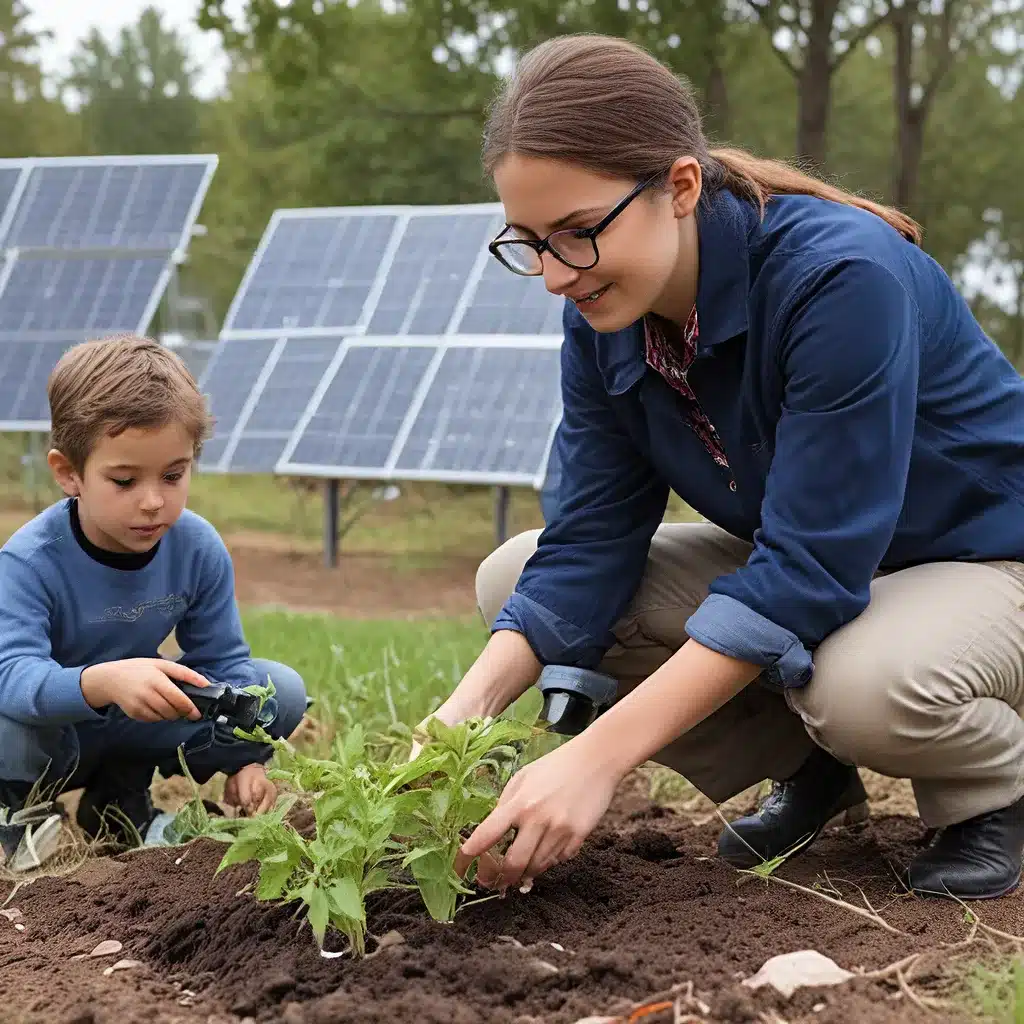
As an educator, I’m passionate about equipping the next generation with the knowledge and tools they need to tackle the pressing environmental challenges we face. And when it comes to renewable energy, I believe education plays a pivotal role in inspiring young minds and paving the way for a sustainable future.
The Renewable Energy Revolution
Remember when solar energy was seen as a futuristic, niche technology? Well, those days are long gone. In recent years, we’ve witnessed a renewable energy revolution that’s rapidly transforming the way we power our world. Solar energy has come a long way from its ancient roots, with the development of cutting-edge photovoltaic systems and solar thermal technologies.
But the journey has been anything but smooth. There have been challenges, controversies, and even skepticism along the way. Yet, the undeniable potential of renewable energy has driven innovators and policymakers to push the boundaries of what’s possible.
The Power of Education
At the heart of this renewable energy revolution is education. By equipping students with a deep understanding of sustainable energy solutions, we’re not just preparing them for the jobs of the future – we’re empowering them to become the next generation of innovators and change-makers.
I’ve seen firsthand how exposure to renewable energy concepts can ignite a passion for sustainability in young minds. Whether it’s learning about the science behind solar panels, exploring the intricacies of energy storage, or grappling with the economic and political implications of renewable energy, these educational experiences have the power to shape the values and career aspirations of our students.
Hands-On Experiences and Community Involvement
But it’s not enough to simply lecture about renewable energy in the classroom. Hands-on experiences and community involvement are crucial for truly engaging students and fostering a deep appreciation for sustainable energy solutions.
Imagine a high school student who gets to build their own solar photovoltaic cell using everyday materials like berries, binder clips, and pencil graphite. The excitement and sense of accomplishment they feel when they see their creation generate electricity is priceless. These kinds of project-based learning opportunities not only solidify their understanding of renewable energy concepts but also inspire them to think creatively about real-world applications.
And the benefits of community involvement can be equally profound. By partnering with local organizations and experts in the field, schools can offer students the chance to participate in energy monitoring projects, attend industry-led workshops, and even visit cutting-edge research facilities. These interactions not only broaden students’ horizons but also foster a sense of civic responsibility and community engagement.
Addressing Challenges and Controversies
Of course, integrating renewable energy education into the curriculum is not without its challenges. Budget constraints, lack of curriculum integration, and limited teacher training can all pose significant obstacles. And then there are the ongoing debates around the economic feasibility and reliability of renewable energy sources.
But these challenges are not insurmountable. By advocating for increased funding, developing comprehensive curriculum resources, and providing robust teacher training programs, we can overcome these hurdles and ensure that renewable energy education becomes a core component of our educational system.
And when it comes to the controversies, I believe the best approach is to foster open and nuanced discussions. Rather than shying away from the complexities, we should encourage students to critically analyze different perspectives, weigh the evidence, and form their own well-informed opinions.
Shaping the Future
As I look to the future, I’m filled with a sense of optimism and excitement. Technological advancements in renewable energy, such as more efficient solar panels and energy storage systems, are making sustainable solutions more accessible and cost-effective.
Moreover, the integration of renewable energy education is evolving rapidly, with curricula being developed across various subjects and grade levels. I can’t wait to see how these educational initiatives will inspire the next generation of renewable energy leaders and problem-solvers.
And let’s not forget the incredible potential of community partnerships and collaborative efforts. By working together with local organizations, businesses, and policymakers, we can create a ripple effect that drives wider adoption of renewable energy practices and nurtures a culture of sustainability.
Empowering the Next Generation
As an educator, I’m honored to be a part of this renewable energy revolution. Firewinder is a prime example of the kind of innovative thinking and entrepreneurial spirit that’s shaping the future of sustainable energy.
But the real heroes are the students – the curious, passionate, and determined individuals who will carry the torch of renewable energy into the future. By providing them with the knowledge, skills, and opportunities to explore this exciting field, we’re not just preparing them for careers – we’re empowering them to become the agents of change our planet desperately needs.
So, let’s continue to inspire, educate, and empower the next generation of renewable energy innovators. Together, we can build a brighter, more sustainable future for all.

